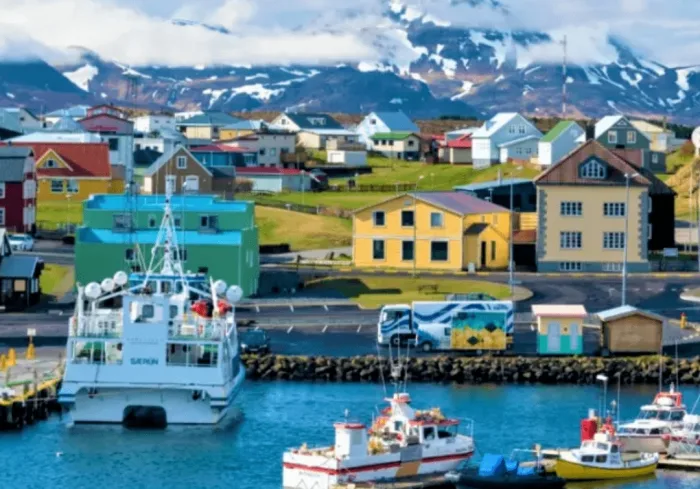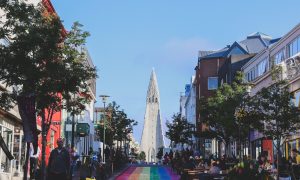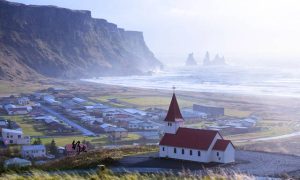Of the five Nordic countries, Iceland has been understated as "immigrantsThe hidden treasures of the world". As a small country with a population of only 380,000, Iceland not only has a pristine natural environment and highly developed social benefits, but is also showing an increasing openness to skilled foreigners, family reunions and remote workers. 2025.Icelandic immigration policyUpdated in some details, this is both an opportunity and a critical point for those planning to move to Iceland.
In this article, we will take a comprehensive look at the latest Icelandic visa types, application process, residency and naturalization pathways for 2025, providing you with a detailed reference for your immigration decision.
One,Icelandic immigrantsMainstream visa types
Iceland is not a member of the European Union, but is a member of the Schengen Agreement and the European Economic Area (EEA). Therefore, applicants from non-EEA countries (e.g. China) are required to obtain legal residence status through the following types of visas:
1. Work Permit
Suitable for applicants with Icelandic employer sponsorship, popular industries include IT, healthcare, energy, construction, etc. Need to provide a formal labor contract and passIcelandic immigrantsBureau Approval.
2. Self-employment or entrepreneurship visas
From 2025 onwards, the threshold for self-employment applications has been relaxed to encourage foreigners to start small businesses, especially in areas such as digital creativity, sustainable agriculture and distance education.
3. Digital Nomad Visa (DNV)
Suitable for remote workers. Need to prove a stable source of income and not work for a local Icelandic business. The visa allows for legal residence in Iceland for a maximum of 6 months.
4. Family reunification visas
Spouses, minor children, and in some cases elderly parents can apply to live with the main applicant, and the application period takes about 3-6 months.
II. Immigration Process in Detail: From Visa to Residence on the Ground
If you want to move to Iceland smoothly, you must have a clear grasp of the entire process and pace:
Step 1: Confirmation of identity path
First of all, identify which type of immigrant you belong to - skilled employment, self-employment, family reunification or teleworking. The required documents and processing times vary greatly between the different types.
Step 2: Prepare application materials
-
valid passport
-
Documents corresponding to the type of visa (e.g. labor contract, proof of company registration, notarization of marriage or kinship)
-
Certificate of health insurance
-
Proof of bank funds or source of income
-
No criminal record (notarized and translated)
-
Proof of residential address (can start with a hotel order or rental contract)
Step 3: Submission of Visa Application
-
All applications are processed by the Directorate of Immigration in Iceland.
-
Priority approval for applications in the skilled personnel category, with an average waiting time of 4-8 weeks
-
Professional organizations can be commissioned to assist in the application to speed up the process
Step 4: Entering the country and applying for a residence card after authorization is granted
-
After obtaining the visa, you have to enter Iceland within a specified period of time.
-
Apply for a National Registry and a Residence Card (ID) within two weeks of arrival.
III. Pathways to long-term residence and naturalization
1. Permanent residence
-
Continuous legal residence 4 years Possibility of applying for a permanent residence card (subject to proof of language and stable income)
-
Freedom to work or start a business without being restricted by an employer
2. Application for naturalization
-
Usually in continuous residence 7 years May apply for Icelandic citizenship afterwards
-
Marriage or special circumstances (e.g. refugee status) can be shortened to 3-5 years

-
Requires knowledge of Icelandic and basic civics
IV. Hidden advantages and real challenges of immigration to Iceland
Advantage:
-
High welfare system: Free health care, free education, good childcare support
-
safe and stable: One of the safest countries in the world with a very low crime rate
-
Unrivaled natural environment: Pure air, excellent water quality, frequent aurora borealis
-
High respect for privacy and freedom: A relaxed and inclusive social climate

Challenge:
-
Cold climate with large diurnal variations: Longer winters, limited sunlight, mental acclimatization required
-
High cost of living: Costs of rent, food and transportation are much higher than the EU average.
-
language threshold: Although English is widely spoken, some official procedures require assistance in Icelandic.
-
Uncontrollable visa waiting period:: Large case-to-case variations, patience required
V. Practical recommendations
-
If you have a family, you can consider "principal applicant + family reunification" simultaneous planning.
-
Initially, it is recommended to choose Reykjavík or its neighboring cities first for a smoother language transition with a concentration of resources.
-
Pre-application assessment of financial reserves, it is recommended to have at least 3-6 months of living expenses prepared
-
Familiarize yourself with the Icelandic social security and tax system, which will help you to integrate into the local system as soon as possible.






